Top 10 reasons why Ghana may never be a developed nation
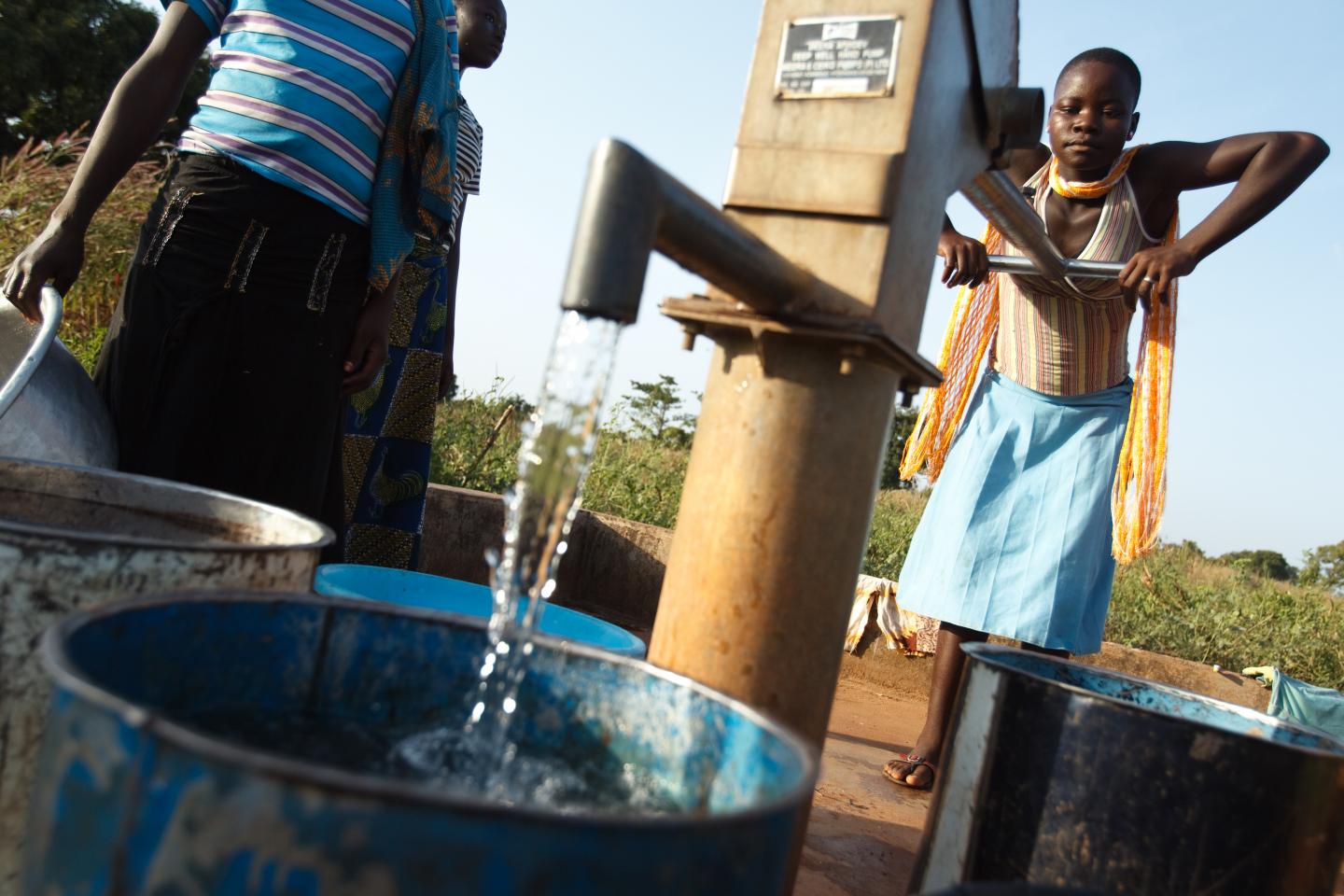
#10: Ghanaian Politicians are inwardly focused
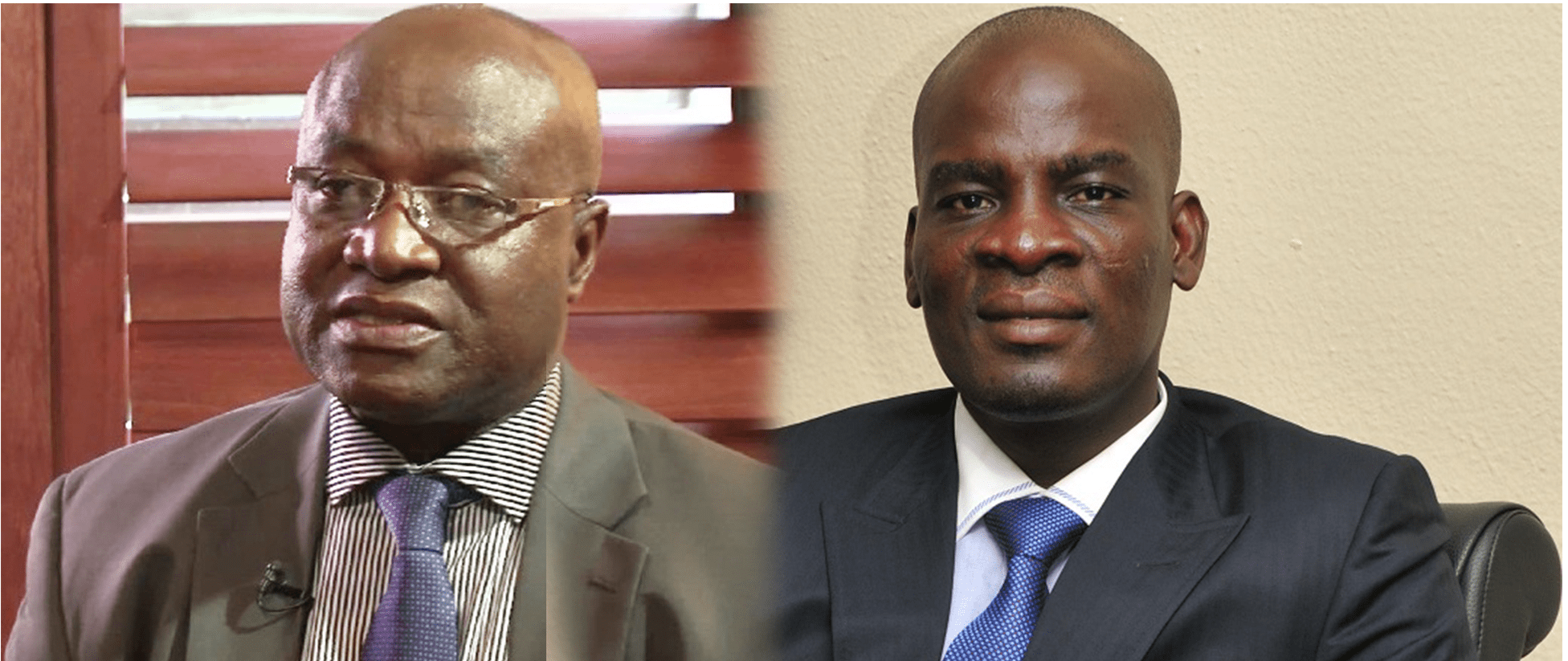
Majority leader, Osei-Kyei Mensah Bonsu, and Minority leader, Haruna Iddrisu
One very characteristic feature of Ghanaian politicians is that whereas their counterparts elsewhere rise in the bid to make their country a world leader in certain spheres, they take solace in looking inwardly to challenge one another. It is only natural that the NPP will always be looking at defeating the main opponent, NDC and vice versa but it becomes problematic if both parties use the other as a yardstick in its quest for better life for the Ghanaian. One would think that a country bent on to become developed would rather be on the heels of other developed nations adopting their policies and nurturing it for local consumption. The NDC only agreed to endorse free SHS after the NPP had won popular support as a result of its endorsement. This is despite the fact that many countries in Europe have a free education policy, some even to the tertiary. The issue of Trainee Teacher allowance also became another flash point for the two parties. One would say no today only to say, yes another day if the other party agrees to increase or restore the trainee allowance. It appears that the NPP and NDC are just twin brothers of same parent who are in a one big cunning game to play Ghanaians.
#9: Most Ghanaian politicians lack vision

It is a weird thing to say about the leaders of one’s country but the lurid details of the fact make it impossible to sweep under the carpet.
A country like Singapore became an independent republic on August 9, 1965 while Ghana gained independence in 1957 and became a republic on July 1, 1960.
If you compare the staggering development in Singapore to the shabby work done by the many empty politicians in the country, the more it exposes the incompetency of Ghanaian politicians from all the unnecessary number of political parties across the length and breadth of the nation.
Today, the Gross Domestic Product (GDP) of Singapore stands at a staggering 372.1 billion dollars while Ghana crawls at a mere 67 billion dollars as of 2019. This is despite the fact that Singapore has very scanty natural resource compared to a behemoth like Ghana.
Whereas some Ghanaian politicians tasked with the job to develop Ghanaian ministries can only hope some companies in the so-called developed nations smiled on them and take residence in the country, Singapore has gone out to create and support a lot of indigenous tech companies like Jurong-Hi tech, Aztech Systems, Eucon Holding, PCI, EDMI and many more.
Rwanda, another African country suffered the unfortunate fate of civil war and in just a space of 100 days or so, more than 800,000 Rwandans lost their lives plunging the country into unprecedented crisis. Long story short, the GDP of Rwanda took a straight nose dive in a spate of seconds during the civil war. But today, Rwanda has re-bounced sharply to beat sluggish Ghana in several spheres. What were these lazy politicians doing all this while? Plundering the nation of its resources as usual.
According to Georank, Ghana’s GDP growth is approximately 5.6% per annum as compared to Rwanda’s 8.6%. On a 5 year average, Ghana’s GDP stands at 4.5% while Rwanda grasps a whooping 7.4%. Ghana’s income tax rate stands at a staggering 35% while Rwanda puts it at just 30%. Unemployment rate in the so-called most stable democracy in Africa stands at a menacing 6.7% while Rwanda after all the civil war, infrastructural destruction and loss of human and natural resources has an unemployment rate at just 1%. So the question is, what have these NPP-NDC politicians been doing all this while?
#8: True intent of Ghanaian politicians is questionable

Politics is a business. It is the career of those who practice it. And like any other career, it has to fend for the practitioner. But a professional is always committed to his/her job more than what he/she gains from it. Such has been the practice of teachers, doctors, just to mention a few.
But the situation takes a drastic change when it comes to Ghanaian politicians. They come in purposely to be served by the Ghanaian people.
There has been a number of corruption allegations or cases brought against a number of Ghanaian politicians from both sides of the aisle.
Abuga Pele, of the NDC, a former member of parliament for the Chiana-Paga constituency, was convicted in February 2018 for willfully causing a loss of GH¢4.1 million to the nation.
Mohammed Mubarak Muntaka, also from the NDC had to resign in 2009 from his position as Minister of Youth and Sports on orders of the late President Atta-Mills following investigations into multiple allegations leveled against him including financial misappropriation and abuse of power.
Perhaps the most alarming was the comment by the rather inexperienced Victoria Hammar of the John Mahama administration who claimed that she was only into politics to make $1 million dollars. Unfortunately, Victoria was the deputy Communications Minister for the country. Although the attitude of 99.9% of Ghanaian politicians fit so well into the confessions of Victoria Hammer, very few have acknowledged it in plain words like this.
Another erratic and unfortunate politician, this time from the NPP’s camp, is Bernard Antwi Bosiako, the so-called Chairman Wontumi. The NPP regional chairman claimed on Starr FM that he makes $1 million dollars daily although he was smart to add that his money did not come from politics but from personal business. But the question is, what moves this personal business? Is it not the power and connections in politics? Besides, he cannot be exculpated from blame given the fact that he is neck-deep in the galamsey.
#7: Ghanaian politicians don’t think and act independently
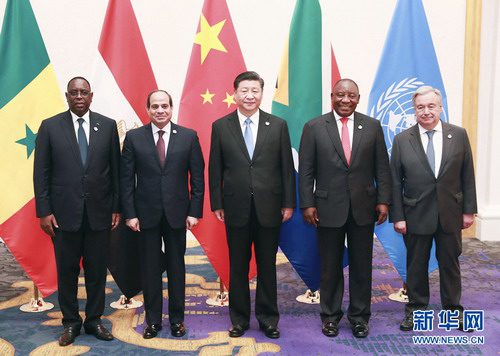
Chinese President, Xi Jinping with African leaders
Most African leaders still live under the shadow of their colonial masters and Ghana is no exception. The issue of sovereignty in Africa is very dicey given the fact that several foreign powers pull strings from afar. The rise of Chinese activities in Africa can be likened to modern-day colonization. Most African countries are debt-ridden such that their daily operations are at the mercy of the Chinese government. In Ghana, the Chinese have been involved in illegal gold mining for years but none has been prosecuted for fear of sparking a diplomatic row with the dragon nation.
#6: Many Ghanaians still vote along ethnic and tribal lines without recourse to reason
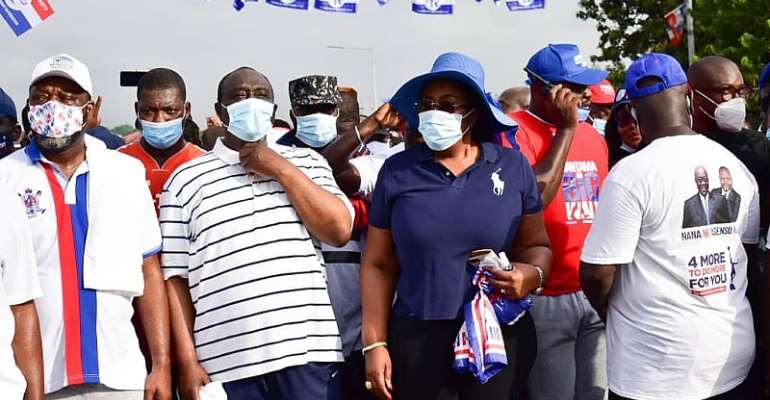
Bantama NPP members take a walk through town
Ghana is a multi-party state. The two main political parties are the New Patriotic Party (NPP) and National Democratic Congress (NDC). The history of these two parties have created traditionally loyal adherents. After more than sixty years of NPP and NDC, the country has a minimum number of free-thinking voters who vote along rational and logic lines with majority of the Ghanaian populace viewing their political party affiliation as if it were part of their ethnic identity.
This attitude of the Ghanaian voter is extremely detrimental to the ordinary Ghanaian. Politicians take undue advantage and in many cases, the people have been denied of development. For instance, Jacobu – the capital of Amansie Central district in the Ashanti region has been taken out of the books of development. Amansie Central is one of the many Ghanaian enclaves that vote purely along ethnic lines without a modicum of objective thought. The district is an NPP enclave and the current member of parliament, Hon. Emmanuel Akwasi Gyamfi, has been voted into parliament for a whooping 20 years. The district has one of the most deplorable roads in the country. The district’s health center, the St. Peter’s hospital lacks a lot of proper equipment. It’s heart-wrenching to realize that despite the obvious neglect, the NPP enjoy unraveled support in the district with most claiming that they were born into the party. Ridiculously, most Asantes believe they were born with the NPP brand. In the same vein, most Ewe Ghanaians sadly have the ridiculous mindset that they belong to the NDC by virtue of their tribe. To most of them, their identity is incomplete without the NDC.
#5: The media disease
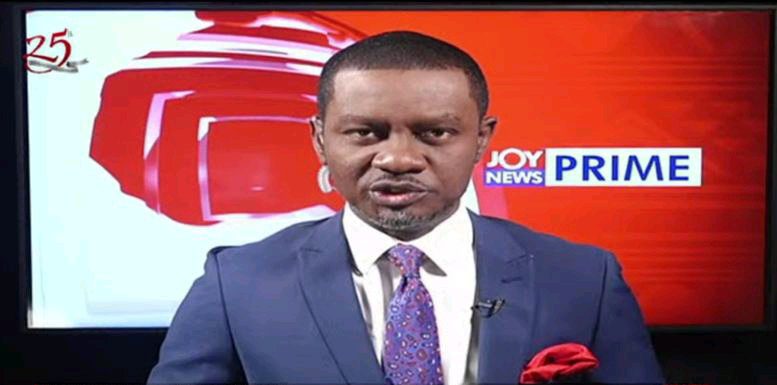
Joy news reporter
Most Ghanaians are kept in the dark by the media. Ghanaian media programs are over-centric on entertainment with very little time dedicated to science and technology programs. Even at the height of the coronavirus, very few media stations like Joy news were reporting frequently on the pandemic with the rest spending ample time showing religious or entertainment contents. The problem is probably because of the fact that many of these media houses are owned by churches and religious men.
In contrast, most foreign media like the DW spend ample time for science and technology and the trend of the tech world.
Very few Ghanaians know what industrialization is and why it matters. Very often, the media is preoccupied with either entertainment or petty issues about the creators of the economic hardships in the country – NPP and NDC.
#4: No support for local companies
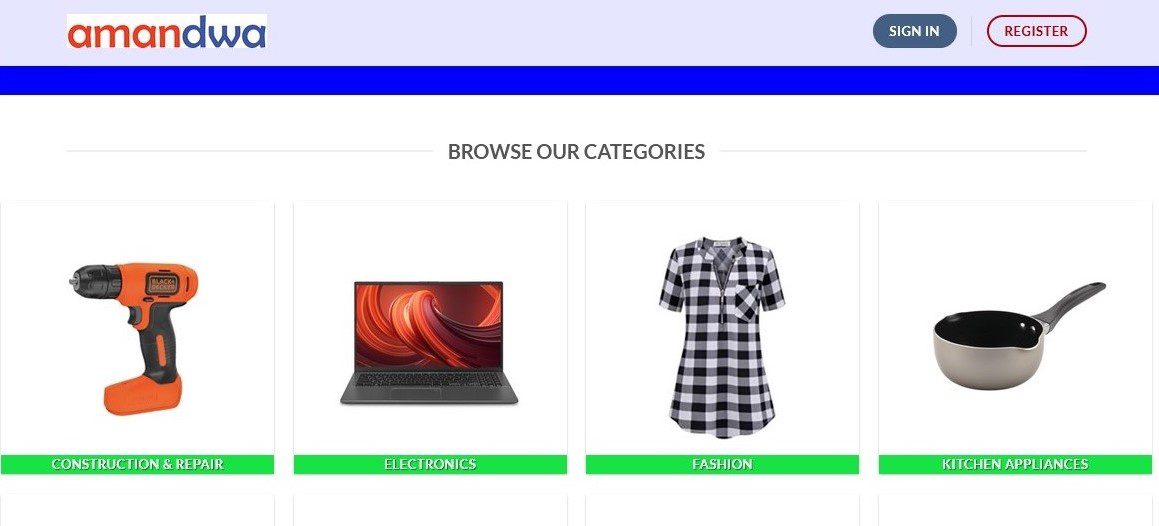
Amandwa, a burgeoning e-commerce company in Ghana
The isssue of Ghanaian politicians supporting their own is a very challenging one. Ghana’s current ecosystem is very hostile to indeginous technological growth. With the many Chinese state-sponsored companies given free roam in the country, no Ghanaian company stands a chance.
Even the little companies who struggle to set themselves up are opened to external and unfair competition by the very people who should have protected and helped them nurture. Kantanka motors is opened to unfair competition. Tonaton is snubbed by the Finance ministry while they court Amazon. Many other local companies have suffered neglect by the government.
It is saddening to realize that Kantanka motors suffer from government exorbitant taxes. For instance, the government of Ghana charges GHC25,000 as duty tax on every 2.4 AT sedan car by kantanka, shooting the price from its GHC115,000 to GHC140,000.
Kantanka has reportedly sent letters to past and present governments for tax waiver but all have fallen on deaf ears.
#4: The NPP-NDC nepotism
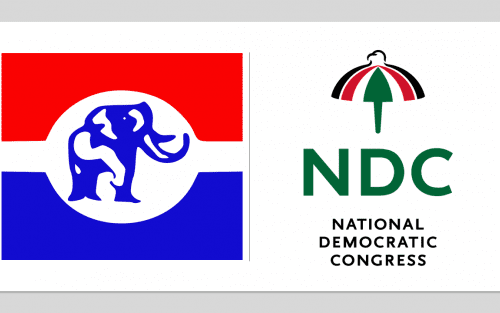
In Ghana, it is alleged that only those who have their political party in power have favor in the eyes of the government. This appears to be true as governments have been criticized of targeting companies affiliated with the opposition.
The NDC has accused the NPP of collapsing NDC-affiliated companies. Adu Asare, former member of parliament for Adenta constituency warned the NPP that the NDC would pay them in their own coin. The former member of parliament accused the NPP of collapsing NDC financial companies. He made these allegations when speaking on the Banking sector cleanup. The former minister claimed the NPP took the most aggressive and wicked root which only sought to collapse pro-NDC banks or financial institutions.
#3: No commitment to a national development plan
Until 2018, Ghana had no strong national developmental plan. It should be said that Ghana’s first attempt to develop a long term development plan as framework for developments began in 1995 and was dubbed the “Ghana Vision 2020”.
The country had earlier made considerable efforts at implementing short to medium term development plans. Notable examples included the 7-Year Development Plan for National Reconstruction and Development (1963/64-1969/70), Ghana Poverty Reduction Strategy (2001-2003), the Growth and Poverty Reduction Strategy (2004-2007) and many others. But one significant characteristic of all these interventions is failure. The outcomes of these plans have fallen short of achieving their intended objectives.
A lot remains to be seen whether the new 40 year development plan which spans four decades (2018-2057) can achieve its target. There has always been no or little commitment on the part of government to realize these aims.
#2: Erratic and unpredicatable education ministry
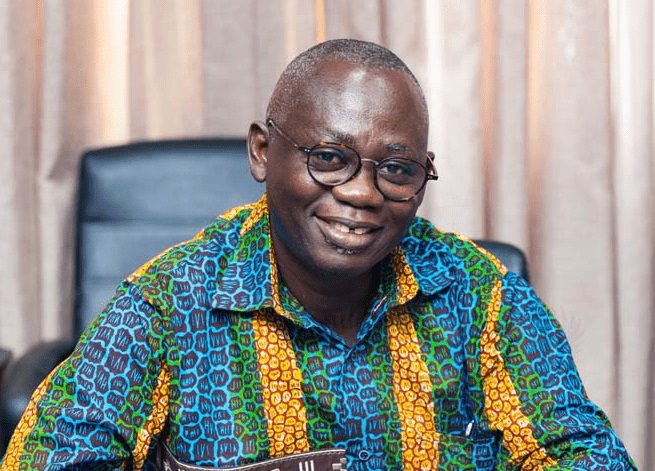
Prof. Kwasi Opoku-Amankwa, Director-General of Ghana Eduction System
The driving force of development in any country is its human resource. The Ghana Education ministry has done more harm than good if it comes to the planning of Ghana’s education system. The NPP and NDC have wrestled on the education turf for sometime. One clear situation was when the Kuffour’s government changed the number of years for Senior High Schools from three years to four years. This was immediately reverted to three years by the Mills NDC administration leaving a lot of students confused.
Although the introduction of the free SHS was the best thing that happened to the Ghana education system, the system isn’t without its attendant problems. The gold and green track have been a major node of confusion.
The Ghana Education System (GES) is in total disarray. For instance, GES on 6th April 2021 issued a directive postponing the reopening date for the final year students (SHS 3). This issue, governed by letter, signed by its Head of Public Relations Unit, Cassandra Twum Ampofo, was only made public after most of the students had reported to school.
Also, multiple changes were effected in the calendar for the SHS1 & 2 students in just a spate of three months in one academic year. The ministry arguably is Akufo-Addo’s most indecisive ministry. Call it his Achilles’ heel.
The Ghana education is in shambles. With the introduction of the free SHS, the academic calendar for SHS students has suffered severe reduction in duration. Under the guise of fancy terminologies, the three year term has been slashed to two semesters.
The free SHS also puts a tight lid on competitiveness among students. Ghanaian students are no more repeated even if they fail to come to school let alone write the semester examination. Ironically, the poor rules governing the free education system has created a lot of truants, negating the true intention of the system.
#1: No Ghanaian President has ever been tried for corruption
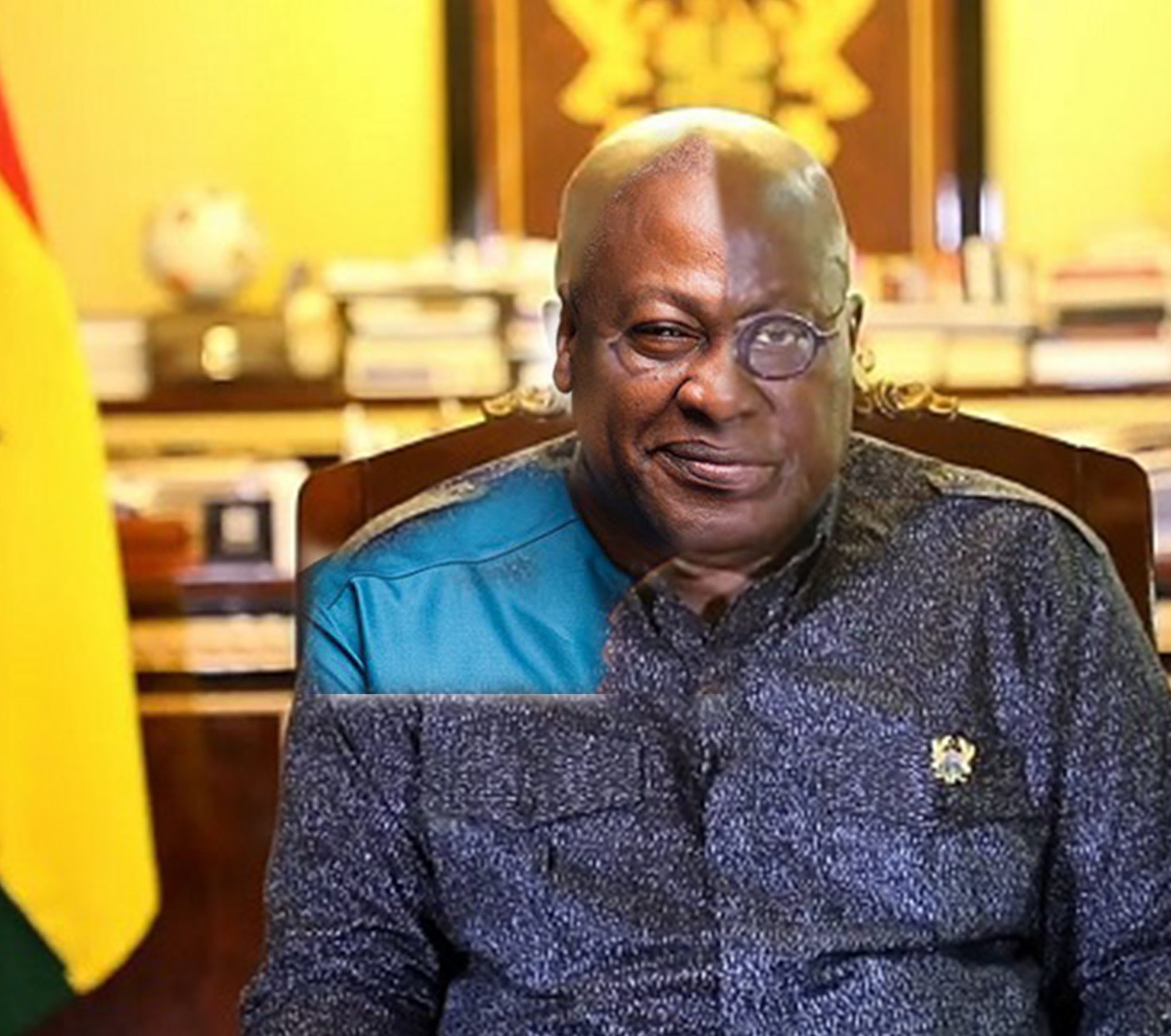
Picture shows half face of former President John Mahama and incumbent President Akufo-Addo.
Former Colombian President, Álvaro Uribe, viewed by many as the most powerful Colombian politician of the last two decades, was put under house arrest for his alleged role in fraud, bribery and witness tampering.
Ecuador’s Supreme High court sentenced former president Rafael Correa to eight years in jail in absentia, for corruption.
In France, the former President Nicolas Sarkozy was sentenced to three years in jail for corruption.
In Ivory Coast, former Prime Minister Guillaume Soro was sentenced to 20 years in prison for embezzlement of public funds and money laundering.
In Algeria, former Prime Minister Ahmed Ouyahia was sentenced to 12 years in prison for corruption.
Despite the many scandals that hit Ghanaian politicians, Ghanaians are yet to see an ex-President facing prosecution for embezzlement, misappropriation of public funds or corruption. Both Presidents from the NPP and NDC have been hit with bribery and corruption cases but none has the commitment to hold each accountable. From John Mahama’s Smartty Bus Branding, GYEEDA, SADA, Ford Saga, Judges Scandal, Woyome’s scandal to Akufo-Addo’s AMERI deal, MMT Procurement officer on tape seeking to breach procurement processes, the two leaders of the two main political parties couldn’t be more alike.
It is said that whoever lives in a glass house should never throw stones. FactAlive strongly believes both the NPP and NDC understand this very well and given that all are caught in the cauldron of corruption, none dares the other. Brothers in arms!
Do you think Ghana will ever be a developed nation? When, and how? Put your comments below.
